17 Science-Backed Natural Remedies for Anxiety
What is Anxiety
Most people associate anxiety with feeling “jittery” or “anxious.”
A person who is, for example, frequently moving or tapping their foot can sometimes be labeled as anxious, but anxiety disorders are indicated in many other ways.
Anxiety can be classified in the following categories:
A panic disorder—The NIH states it clearly. “Panic attacks are characterized by a fear of disaster or the losing of control even when there is no real danger.”
When this type of attack occurs, physical symptoms can add to the uneasiness.
For example, a person having a panic attack may feel that their heart is beating excessively fast, which only adds to heightened fear.
In fact, people who have panic attacks feel as if they are actually having a heart attack. (1)
Generalized Anxiety Disorder—It is normal to be anxious on the day of an important test, your wedding day, or when you are being interviewed for a job.
It is not normal, however, to experience excessive anxiety over a period of several months.
Some symptoms could include a lack of concentration, restlessness, fatigue, irritability, muscle tension, or constant worry.
These feelings can often occur in social situations if an individual believes people are judging them, are embarrassed, or worried that they might offend someone. (4, 1, 2)
Post-Traumatic Stress Disorder—This disorder is characterized by someone having lived through a traumatic experience.
It is usually noticeable within a few months after the trauma.
It can cause bad dreams, flashbacks, or even an elevated heart rate.
Nevertheless, not everybody who experiences trauma develops this disorder. (5, 1)
Phobias—A phobia is an irrational belief that something will be a threat, even though no threat is present.
Phobias typically begin during childhood or the teen years and continue into adulthood. (6, 1)
Separation Anxiety—This disorder normally occurs in children who are 8–14 months old.
Change occurs as children are separated from their comfortable environment.
Being unable to adjust normally will initiate the development of separation anxiety. (7, 1)
These classifications of anxiety are the most prevalent mood disorders among Americans.
The NIMH reports that 4.1% of anxiety disorders are classified as severe.
These disorders are associated with the accompanying symptoms in both the occurrence and alleviation in twelve months’ time.
It is estimated that 18.1% and 28.8% of Americans will experience symptoms of anxiety at least once in their life. (8)
Less than 50% of all anxiety disorders are properly treated. (8)
Children can also suffer from anxiety disorders, which are most commonly formed at age eleven.
Three percent of children ages 3–17 suffer from anxiety.
Behavioral problems are diagnosed as frequently as anxiety disorders.
Behavioral problems are diagnosed as frequently as anxiety disorders.
During the 1990s, an estimated $42.3 billion was spent in the United States to treat these anxiety disorders.
People need to cope with their anxiety not just to lessen costs but also to live a healthy life and feel better. (1)
This information indicates ways that anxiety can affect you.
Perhaps you can identify with some of these statistics or feel frustrated that you do not know what to do.
There is an answer, though, and it does not involve prescription pills.
We will talk about natural ways to control anxiety.
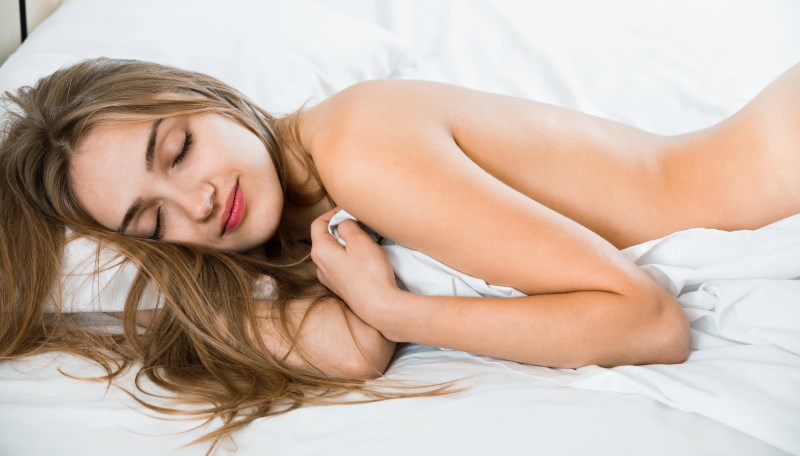
Natural Remedies for Anxiety
Sleep Healthy
It is important to get enough sleep, but this can be hard because anxiety will keep you awake.
What can you do?
Try doing something relaxing.
Reading a book is a good way to prepare for bed and ease your mind.
The object is to reduce your anxiety.
Understand that lack of sleep affects not just your mind but your body as well.
Poor sleep can also interfere with your daily activities.
To help you sleep, take a warm shower or lower the temperature in your room, and do not look at your phone.
Turning off all the lights would also be a good idea.
It is important for your body to be in complete darkness so that it can produce melatonin.
Research at the University California Berkeley agrees with these claims.
Sleep can help lessen anxiety in many ways.

No More Frowns
Remember to smile. Enjoying life is a great way to beat anxiety.
Stress may be caused by a job or a relationship, and smiling will uplift you.
This is not just a positive coping skill. Research suggests that smiling reduces stress and anxiety.
Frowning is an outward expression of how you feel on the inside.
You need to change your negative energy and invest some time doing something that will boost your spirits and create smiles rather than frowns. (11)
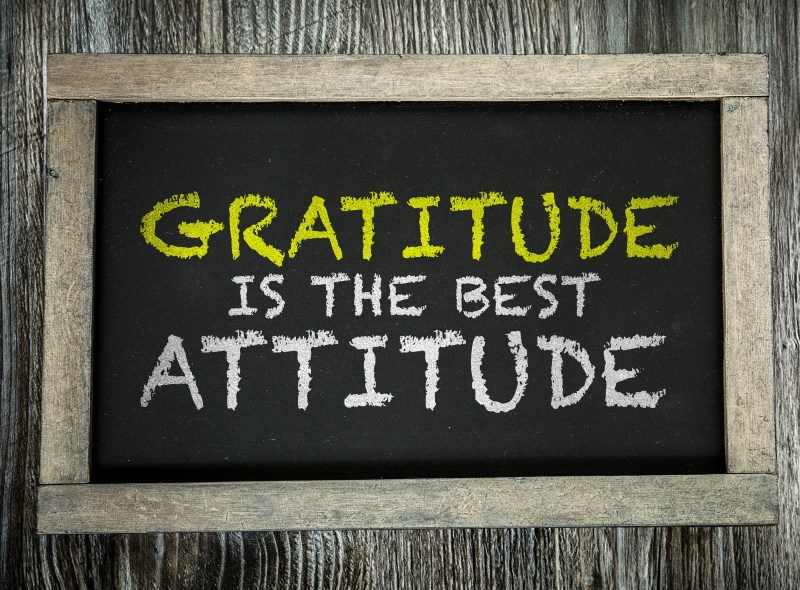
Show Gratitude
Showing gratitude is another positive way to cope with anxiety, which is often caused by stress.
You could also begin keeping a journal.
You reflect on what you have in life, and a positive attitude may lead to less anxiety.
If you focus on the important things you have in life, you may feel less anxious.
Doing the opposite will likely increase the problem. (18)

Eat Healthy
Eating right also correlates with less anxiety.
A bad diet affects your body negatively and also makes you more anxious.
Try to eat healthy foods, such as those with omega-3 and vitamin B.
Another idea would be to eat whole-grain carbs, which can boost serotonin in the brain.
This chemical is directly related to anxiety and depression.
Whole-grain carbs would be a good choice for remaining calm.
Eating right can act as a stimulant and help you have a healthy, productive day.

Remember to Breathe
Take deep breaths. Breathing slowly in and out is a good way to keep yourself calm.
One suggestion is to stop what you are doing and count to ten in your head as you breathe deeply.
Doing this allows your body to cope with stress and your mind to reposition itself.
Taking deep breaths can help relieve symptoms of anxiety, especially during a panic attack.
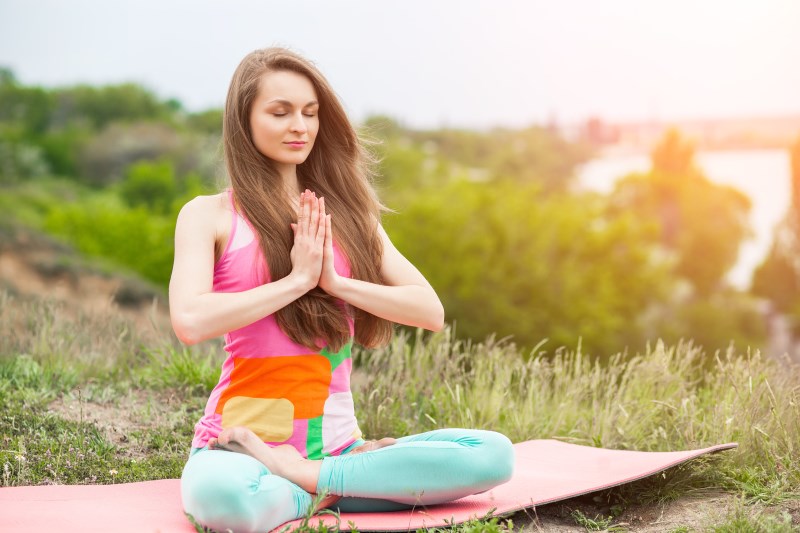
Try Meditation
Have you ever tried meditating?
This can be a very useful for helping to relieve anxiety, and studies indicate that it will affect your brain in positive ways.
Not only is meditating calming but it can also promote long-term relief from anxiety.
It also allows you to have a better attitude about life.
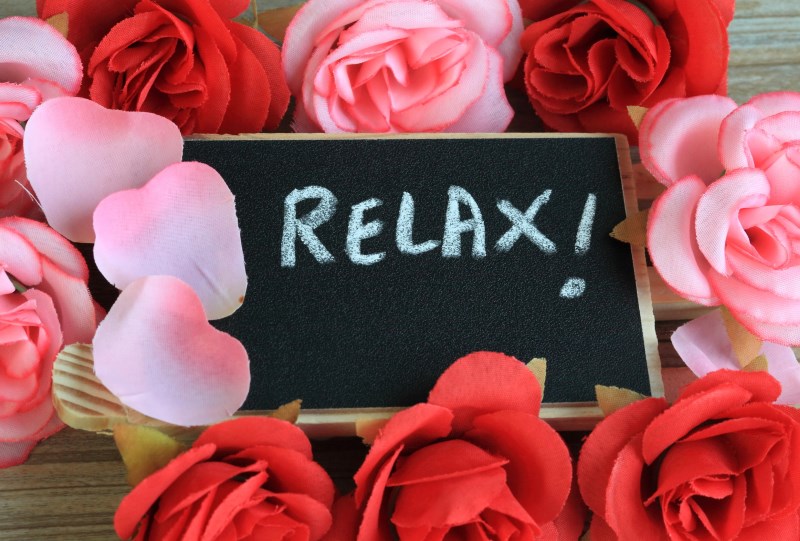
Do Not Worry
One of the leading causes of anxiety is worry.
Take one day at a time. If you feel exasperated, tell yourself that you will change what you can.
Also, realize you must accept what you cannot change.
Constantly worrying can lead to a negative mindset, which can also affect your physical symptoms. Just relax.

Do Not Isolate Yourself
You should understand that isolating yourself from friends and family is not constructive.
Being alone affects your thoughts and creates a negative mindset.
When this occurs, you may retreat from life, which causes anxiety and racing thoughts.
Socializing can actually lead to production of a hormone called oxytocin, which has a calming effect.
Humans are social creatures.
Isolating yourself from other people can cause stress and anxiety. (17)

Picture Something Calming
When you are stressed, you might want to try to visualize yourself in a very calm and peaceful place—perhaps the beach or some other peaceful setting.
Thinking calm thoughts can affect both your mind and body and may even help you sleep better.
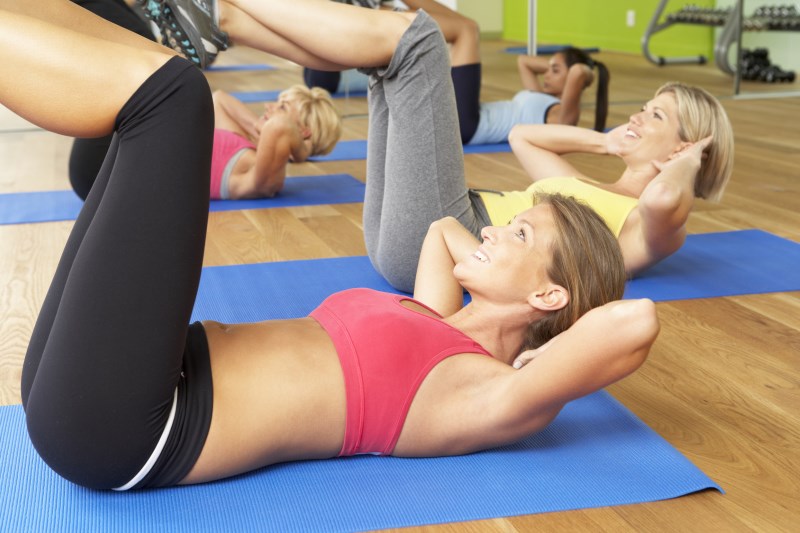
Try 21-Minute Exercise Program
An exercise routine known as the 21-minute cure can also help relieve anxiety.
Get on a treadmill or lift some weights, and give yourself a good workout.
It does not have to last long, but try doing it for 21 minutes each day.
This practice has been shown to reduce anxiety and help you feel calm.

Hops Can Be Calming
Hops can also relieve anxiety—not beer but the herb form of hops.
Beginning in the 19th century, hops have been used for different problems.
They have a sedating effect that not only helps relieve anxiety but also helps you sleep better.
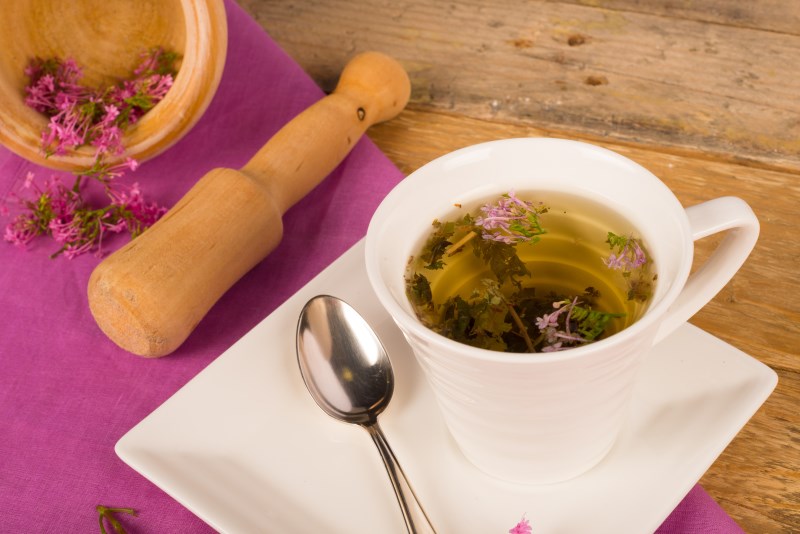
Drink Some Valerian
Valerian is a natural supplement that also helps relieve anxiety.
It could also help you sleep better because it has sedating effects.
The word is Latin and means “strong and healthy.”
Not only is it used to help relieve anxiety but insomnia as well.
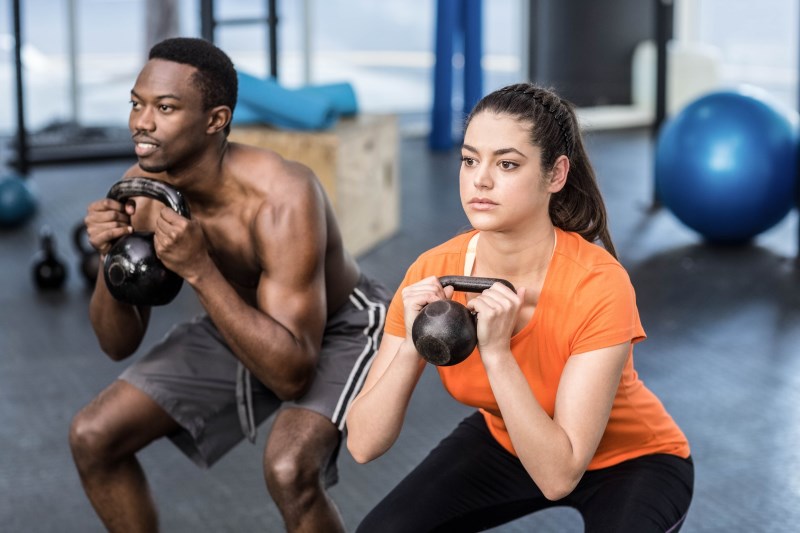
Remain on Top of Your Health
Do not let your blood sugar level drop very low because this can create problems with anxiety and stress.
If you have not eaten in a while and feel overly anxious but do not know why it might be a wise to eat some chocolate.
One credible source says, “People get more anxious and irritable when they are hungry.” (22)
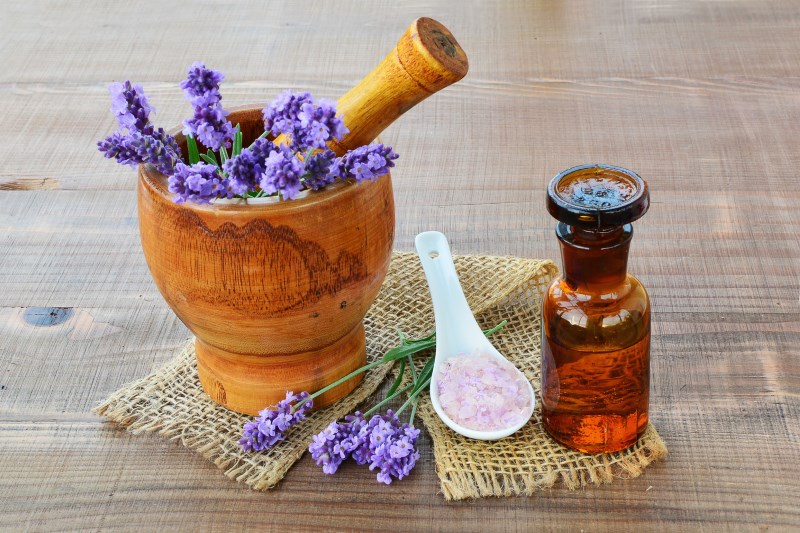
Anxiety and Lavender
Lavender oils have been shown to be helpful for combating anxiety.
Perhaps you can get a massage with this oil, or place a couple of drops on a pillow so that you can breathe in their calming effect, even while sleeping.
Besides helping to reduce anxiety, lavender is also helpful in lowering high blood pressure.
The scent of vanilla can also fight nagging anxiety as well as depression.

Sunlight May Help
You should also get outside and enjoy the beautiful sunlight.
Your body creates vitamin D as it absorbs sunlight, which could be effective in helping deal with stress and depression.
Avoiding sunlight can actually cause a number of mental health problems.
Perhaps you could go for a walk and try to exercise at the same time.
Go to a park, a walking trail, or enjoy the pool during the summer.
These activities are effective ways to reduce anxiety.

Enjoy a Bath
Another good idea would be to take a relaxing bath.
As a bath raises your body heat, you will feel less anxious.
You should even try placing Epsom salt into the bath water, which has been shown to not just help you relax but also lower your blood pressure.
Taking a bath is good when you want to sleep.
When your body temperature rises, some beneficial physical changes can occur.
A bath helps to calm you, and when you get out of the water and into room temperature again, the adjustment in your body calms you down.
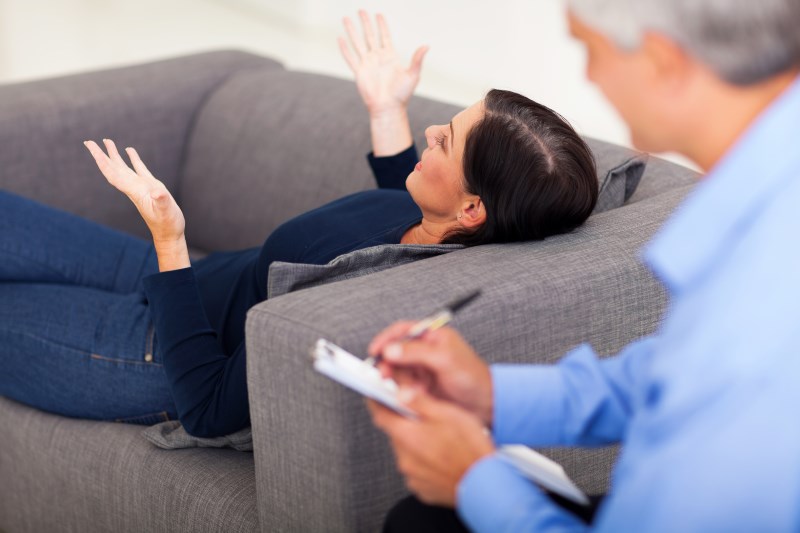
Therapy
Counselors and social workers are specially trained to deal with a large variety of issues, including anxiety.
They can be a first line defense against problems pertaining to many issues, including anxiety.
To get better, you must be willing to change.
Both counselors and social workers are skilled in psychotherapy, which means your problems will be assessed by using psychology rather than what a medical doctor does.
In addition, they deal with emotions and can help control your anxiety with coping skills.
Just because you consult a specialist does not make you any less of a person.
In fact, it demonstrates your dedication to trying to solve issues that you may have.
Although both types of therapists are beneficial in many ways, they are different in how they try to solve problems.
Social workers may focus on issues related to having enough food.
There is a precise A to B approach to everything.
You do A, and you get B. They strategize issues with your cooperation so that you are able to overcome them.
In addition, they are much more likely to meet with your loved ones as well as assuring people that you are sincerely trying to cope with your life.
Counselors, on the other hand, are more involved with, for example, a student’s life in specific areas.
They are concerned with dealing with issues that will improve your life and lead to success.
They try to ensure that you are properly coping with your issues in a healthy manner.
For a student, this may mean, for example, dealing with bullies.
Do not confuse psychiatry with these two types of therapy.
Unlike therapists, psychiatrists have a medical degree but do work on behavioral modification.
They also deal with prescription medication.
Some people need one or the other, and it is not uncommon to need both.
Conclusion
Hopefully, this list helps you to deal with anxiety.
However, if you are having issues trying to relieve anxiety and cannot solve your problems on your own, it may be a good idea to consult a counselor or social worker, but this usually differs from case to case.
FDA Compliance
The information on this website has not been evaluated by the Food & Drug Administration or any other medical body. We do not aim to diagnose, treat, cure or prevent any illness or disease. Information is shared for educational purposes only. You must consult your doctor before acting on any content on this website, especially if you are pregnant, nursing, taking medication, or have a medical condition.
HOW WOULD YOU RATE THIS ARTICLE?
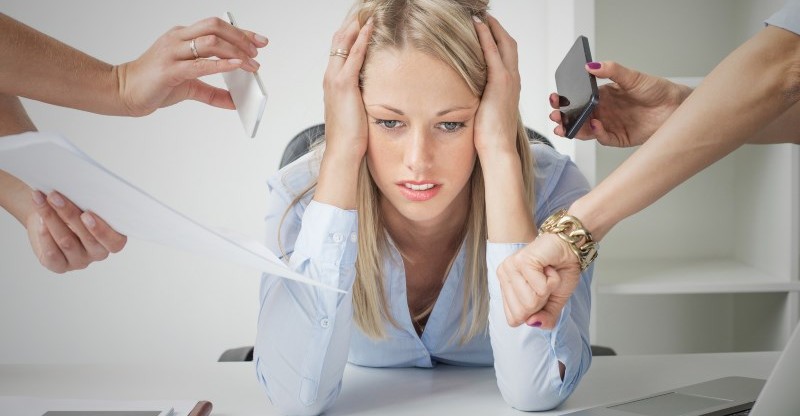


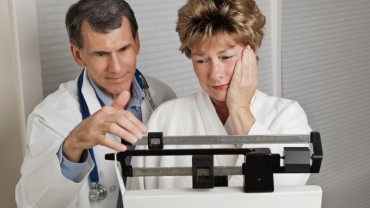


Why exactry the 21 MINUTE EXERCISE Program can help to relieve anxiety ????
Hi Pamela! 21-Minute Exercise Program is science-based approach that helps to become stronger and healthier, boost metabolism and immunity, which in its turn helps to relieve anxiety.
How exactly should I hop to relieve anxiety? Do I need some equipment?
I light a lavender candle in my bedroom and it really helps me to relax and sleep tight all night long:)
What temperature is perfect for a relaxing bath?